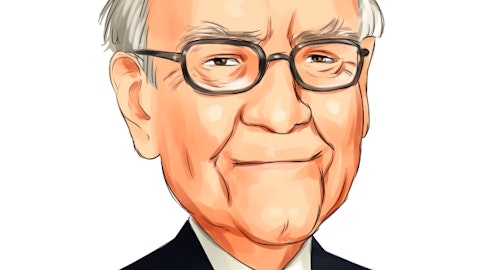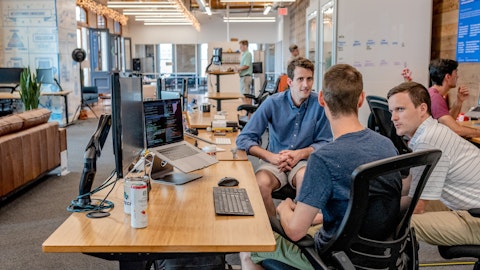Lia Matos: Hi, William, Lia here. So as I mentioned just now, we are planning to start scaling credit in the second half of 2023. So I think in terms of the timing that’s what we’re planning for and we can expect expansion to happen more significantly towards 2024. That’s what we have in our plans and we can give color on.
William Tang: Okay. Perfect. And then I guess my follow-up here. While the company doesn’t give longer-term guidance, do you generally see margin expansion from current levels over time? So, I guess phrased another way, do you feel that profitability margins now are €“ have peaked, or do they have more runway?
Thiago Piau: Hi, William, Thiago here. I think that in terms of margin as Rafael said, we see a space to continue to increase margins. As we said, first quarter has a seasonal effect. So on a quarter-over-quarter basis margins should improve. And in terms of outlook, we are giving the outlook for the first quarter, and we are giving space for Pedro to come in the first quarter earnings call, and give more color about future outlook.
William Tang: Okay. Perfect. Thank you, guys.
Thiago Piau: Thank you, William.
Lia Matos: Thanks, William.
Operator: The next question comes from Natalia Corfield with JPMorgan. Please go ahead.
Natalia Corfield: Hi, guys. Thank you for taking my question. I have two questions for you. The first one, I know that you are not considering buybacks of your bonds. However, given current prices at around like $0.68 on the dollar, I’m wondering if that has changed. And my second question is back to funding. Just to understand, how and you mentioned here the sale of receivables. Just to understand, how sales receivables have been both Americanas, and you’re funding the local market in general for Americanas not only the sales of receivables, but also the CGX and loans with banks. How has this been post Americanas for you? Those are my questions.
Thiago Piau: Hello Natalia, this is Thiago speaking. In terms of sales of receivables, we do have many outer parts in Brazil in the local market. So I think that we have the ability to continue our strategy to fund our business with sale of receivable without relevant changes in terms of funding prices. So that’s why we are confident with the guidance we gave. So, if you see in the implied guidance, there is no material change in terms of how we fund our business or the prices we pay to get access to funding. So, it’s pretty much a regular execution for first quarter. In terms of the bond, we do see an opportunity in terms of our bonds, in terms of the implied spread — and we are always evaluating options to allocate capital wisely and we are following closely that. And we think that that is a good capital allocation opportunity for investors and we are following this very closely.
Natalia Corfield: All right. So now, you consider a possible buyback of the bonds at current prices?
Thiago Piau: I think that that’s not the statement I’m saying. I’m just saying that we are following closely. And we see this as a good investment opportunity. We are following closely.
Natalia Corfield: Right. And your sales receivables, you’re saying that it hasn’t changed from both Americanas or like is not even…
Thiago Piau: It hasn’t changed in terms of volume and almost no change in terms of price because of the number of counterparts we have. So no big changes in our execution. That’s why we are confident with our guidance. There are no changes in terms of how we fund the business, no impact from the Americanas event in Brazil.
Natalia Corfield: Okay. Thank you, very much.
Thiago Piau: Thank you, Natalia.
Operator: This concludes our question-and-answer session. I would like to turn the conference back over to Thiago Piau for any closing remarks.





